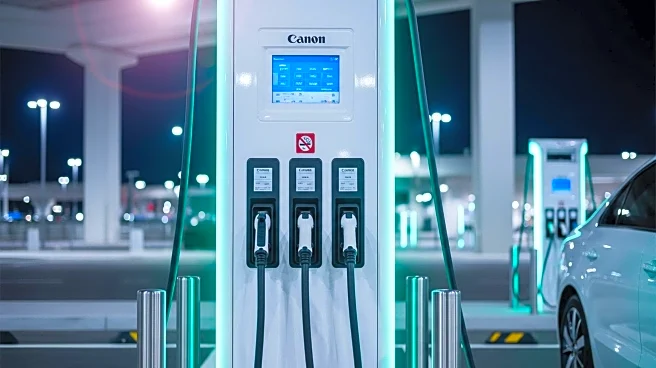What is the story about?
What's Happening?
Ford Motor and General Motors have reported an 8% increase in their third-quarter U.S. auto sales, driven by a surge in electric vehicle (EV) sales. This growth comes as consumers rushed to purchase EVs before the expiration of a $7,500 federal incentive. Ford's EV sales rose by 30% compared to the same period last year, while GM's EV sales more than doubled. Hyundai also saw a 13% increase in sales, largely due to its EV offerings. In contrast, Japanese automakers like Toyota and Honda experienced mixed results, with Toyota's sales up by 16% and Honda's down by 2%. GM maintained its position as the top U.S. automaker, with a market share of 17.2%, the highest since 2015.
Why It's Important?
The increase in EV sales highlights a significant shift in consumer preferences towards more sustainable transportation options. This trend is crucial for automakers as they navigate the transition from internal combustion engines to electric powertrains. The expiration of federal incentives could impact future sales, but the current surge indicates strong consumer interest in EVs. This shift also underscores the importance of government policies in shaping market dynamics. Automakers that have invested in EV technology stand to benefit from this transition, while those lagging may face challenges in maintaining market share.
What's Next?
As the federal incentives for EVs have ended, automakers may need to adjust their strategies to maintain sales momentum. This could involve increasing investments in EV infrastructure, enhancing vehicle features, or offering new incentives to consumers. The industry will also be watching for any new government policies that could impact EV adoption. Additionally, automakers will likely focus on expanding their EV lineups to cater to a broader range of consumer preferences.















